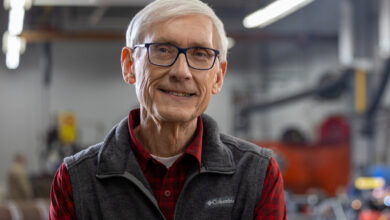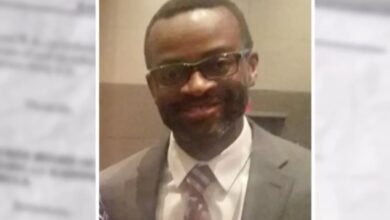Program for Colorado LGBT Seniors Gets $100K Grant
By PAM MELLSKOG
Longmont Times-Call
LONGMONT, Colo. – Two years after divorcing his wife of nearly 25 years, Jack Davis flew alone in 1982 from Denver to Dallas to spend Thanksgiving with his mother and tell her that he was gay.
Even when he could choose the time and the place, the uncertainty of how she would respond forced him to write her a letter instead.
At 79, the single Longmont resident enjoys good health, lives in a tidy mobile home, delivers auto parts full time, and goes out with friends for Scotch and dinner on occasion.
But Davis realizes that some of his closeted gay, lesbian, bisexual and transgendered peers may not get to choose when, where, how and to whom they come out should failing health force them into a care-giving setting.
In May, Project Visibility – a cultural competency training program aimed at administrators and staff of nursing homes, assisted-living residences, home care agencies and other senior service providers – landed a $100,000 grant from The Theodore and Chandos Rice Charitable Foundation to continue developing the award-winning program launched in 2004 to benefit LGBT elders.
“(LGBT) elders are afraid of being discriminated against, and that’s not right,” said Teresa DeAnni, the Healthy Aging Programs manager at Boulder County’s Aging Services division who helped launch the program now used as a model by agencies on aging in more than 20 states.
The free, three-hour training exists to counter stereotypes and foster more compassionate care for this still stigmatized group. It includes a 21-minute video of local LGBT elders, a group estimated at 3,200 members in Boulder County, sharing their concerns about encountering hostility in these settings.
Davis said that in other settings where he senses awkwardness related to his homosexuality, he typically avoids interacting with those individuals.
But that is easier said than done when the time comes to transition into a care facility, said Carolyna Smiley-Marquez, a licensed psychotherapist in Longmont with expertise in multi-cultural populations including LGBT adults.
“It is an environment there where (LGBT elders) can’t seek other social venues. That is the social venue, and you have to get up and see these people for breakfast,” she said. “Also, because this environment is completely transparent, people know who’s visiting, and they also know if the door gets closed and stays closed for a while. … There’s a great deal of lost privacy, and even if you’re open (about sexual orientation), it’s still a public environment, and you’re going to have people wondering and talking.”
Davis said an older gay friend of a friend in Denver now lives in a nursing home.
“He’s really pretty miserable because he’s the only gay person there, and he certainly hasn’t been able to talk with the staff,” he said.
Such an environment – coupled with statistics that show LGBT elders four times more likely than straight elders to be childless and twice as likely to live alone – increases the risk of substance abuse, depression, unnecessary institutionalization and premature death, according to the website for the premier LGBT advocacy group, Services & Advocacy for GLBT Elders, in New York City.
Staff and some residents at Cinnamon Park Assisted Living Residence in Longmont, which is operated by Senior Housing Options in Denver, took the Project Visibility training in 2009, manager Debbie Setlock said.
“When we hire younger people, it’s more of a `Duh. Of course we wouldn’t treat anybody like that,”‘ she said, noting that the younger generations get more exposure to the LGBT community through the greater openness of its members today and more inclusive media coverage.
“The training also needs to reach older staff members and even residents. We don’t want someone to laugh at somebody and say, `Why would those two women be holding hands? That’s disgusting,”‘ Setlock said. “It’s so unfair that (LGBT residents) should be denied living safely, comfortably and openly. … So, we put up a Safe Zone poster here. It’s just like when you see the wheelchair sign that says you’re wheelchair accessible and ADA compliant. We’re LGBT-friendly.”
California now requires this type of cultural competency training, said Nancy Grimes, an LGBT program specialist with Boulder County.
No such law exists in Colorado. So, Davis lauded the efforts of Project Visibility to informally change the culture that he may someday face.
“I’m not sure that having staff ask (about a resident’s orientation) would be the right thing – especially if someone is still very, very closeted. But I am sure that (LGBT residents) would appreciate acceptance of who they are,” he said. “Staff just needs to understand that there is a whole range of personalities in the gay community. Some like privacy. Some don’t. Some are easily offended. Some aren’t. … I can listen to people telling gay jokes, and if they’re funny, I will laugh. But if they’re not, I’m not offended. Those people still just don’t know any better.”











Comments